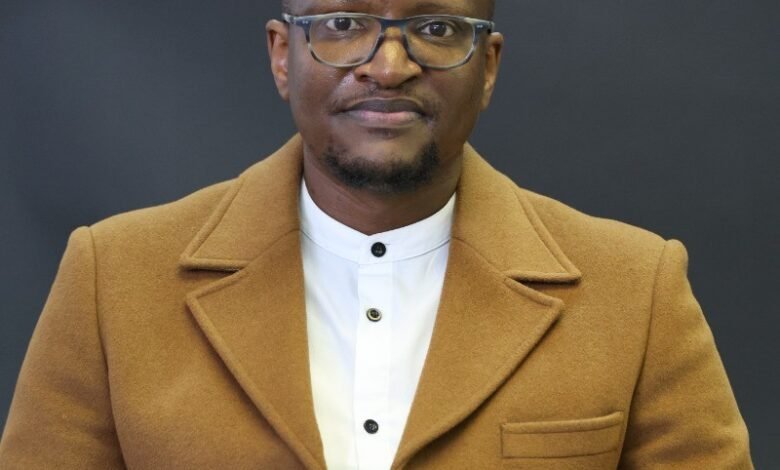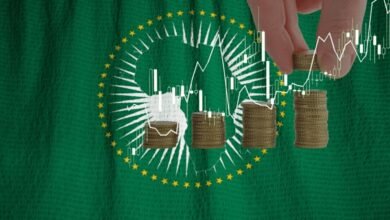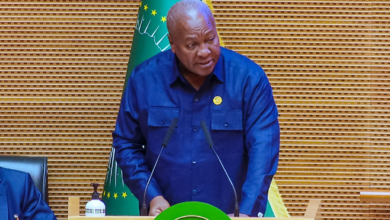South Africa: A neo-Colony of neo-Imperial America
In this new Cart’Afrik, Loyiso Mpeta, founder and CEO of Mshindi Bingwa Group Holdings, reflects on the Ramaphosa–Trump meeting to question the legacy of colonialism, the mechanics of the American “neoliberal empire,” and South Africa’s position within this system. A thought-provoking piece that challenges assumptions and sparks debate.*Loyiso Mpeta

The recent White House meeting between President Ramaphosa and Trump continues to be a point of discussion and debate on social media. Counter-hegemonic knowledge has allowed me to take a step back, let the hype die down and then give my unfiltered opinion on the matter. For me, that whole meeting was about the colony having to go and explain itself to its imperial master. Oh, we have to put “neo” in front of the bad words today.
Manifest Destiny And The Rise of neo-Imperial America
America has a long history of colonial conquest which I will not repeat here. What many may not know is the ideology and core belief that underpins this conquest. Before Darwinism became a pseudoscientific justification of everything racism, slavery and colonialism, the Americans had Manifest Destiny. Manifest Destiny is the doctrine popular with many Americans during the 1840s, that the conquest of North America was divinely ordained; that God, not men, had ordered the destruction of Indians, forests, and buffalo, the draining of swamps and the channeling of rivers, and the development of an economy that depends on the continuing exploitation of labor and natural resources. The Monroe Doctrine is another that reveals America’s attitude towards the world. It was originally enunciated by President James Monroe in 1823 and was used to take Manifest Destiny a step further when, in the 1850s and 1860s, it was used to assert that the United States had special rights all over the hemisphere, including the right to invade any nation in Central or South America that refused to back U.S. policies. During the latter half of the twentieth century after World War II and into the Cold War, the United States used the Communist threat to justify expansion of this concept to countries around the globe, including Vietnam, Indonesia and South Africa.
Post-WWII saw the United States rise as the global super-power as well as the establishment of the World Bank (WB) and International Monetary Fund (IMF) which would both have key symbiotic relationships with the USA governments. The process of conquest hereon in (as detailed by John Perkins) would initially be via Economic Hit Men (EHM) who tie governments into neoliberal economic locks through debt, if that does not work then in come the Jackals with an assassination here and there and a coup d’état for good measure and if that does not work, well, here comes the U.S. Army to import freedom and democracy.
Communism: A Social Construct
Engels himself proclaimed this in Socialism: Utopian and Scientific; “Modern socialism is nothing but the reflex in thought of this actual conflict, its ideal reflection in the minds of above all the class directly suffering under it, the working class.” Socialism and Communism are social constructs borne out of injustices more than it is an economic system of growth and prosperity. One cannot help but be empathetic to this just-cause when you take into account how the feudal system, slavery and modern capitalism has exploited the poor and working class throughout the ages.
A grand error in communist/socialist thinking however is the propagandist view that capitalism, in and of itself, is evil. As Patrick Bond stated in Commanding Heights & Community Control: New Economics for a New South Africa, “If one is to unveil the pernicious activities of capitalist elites in a way that is politically and theoretically accessible and meaningful, then a knife-edge course must somehow be cut between agency and structure.” Agency refers to the deliberate actions, strategies, and power wielded by individuals (elites, politicians, corporate leaders) in shaping economic and political outcomes whereas structure refers to the broader systemic forces (capitalism, neoliberalism, racialized inequality, global financial systems) that enable and constrain elite power. It is here that the communist view falls short. By ignoring the agent, human immorality is removed from the equation and the system gets blamed for being evil. The godfathers of modern communism and socialism, Engels, Marx and Lenin, are renowned atheists or at least agnostics and they have a disdain for religion and the Bible and they know that if they address the agent, human morality will be an unavoidable aspect and once morality becomes the focal point, it is inevitable that the question of where do we get the standard for morality from, will arise, and inevitably, the Bible and religion come into play. The final result of this is the flawed beliefs of current Marxist-Leninists that capitalism is evil itself, that capitalists cannot be good people and that capitalism and social justice & fairness cannot co-exist.
In South Africa, this is no different. The 130 years of colonialism and apartheid shut Black people out of the economy and Blacks regarded capitalism and the respective governments as almost synonymous. As Clive Menell said in Anthony Sampson’s Black and Gold: Tycoons, Revolutionaries, and Apartheid; “the vast majority of Black South Africans regard business, the government, apartheid, the status quo and the devil as one.” On the other hand, Black South Africans regarded communism as the antithesis of this evil as communist countries were the ones that came to the aid of the armed liberation struggle. On X (Twitter), this radicalism is very evident and being a “centrist” is the most difficult position one can take as you get pulled to the far-left by the purist socialists and communists and get pulled to the far-right by the Darwinian neoliberals.
A Victory for Neoliberalism
America’s politico-economic models have undergone many transformations over the centuries with the degree of government intervention ebbing and flowing in respective eras. The second industrial revolution saw the rise of the Robber Barons, powerful 19th-century American industrialists and financiers who amassed vast wealth through monopolies, exploitative business practices, and political influence. The term was used pejoratively to describe their ruthless tactics, but some also view them as « Captains of Industry » who drove economic growth. This laissez-faire period came to an abrupt end with the stock market crash of 1929 that led to The Great Depression of the 1930s.
The Great Depression led to a dramatic increase in government intervention with The New Deal. The New Deal was heavily influenced by Keynesian economics, particularly the idea that government intervention is necessary to stabilize the economy during downturns. John Maynard Keynes argued that deficit spending, public works programs, and financial regulation could help counteract economic recessions by boosting demand and employment. The New Deal also provided social safety nets in the form of social security and unemployment insurance. This economic model can be termed welfare-capitalism or social democratic capitalism as it is called in the Nordic countries. In Black and Gold: Tycoons, Revolutionaries, and Apartheid, Sampson writes that Oliver Tambo had stated that “Sweden” seemed to be the ANC’s economic model in a conversation in 1987.
Now, a fact that many academics in economics may not like; economics is not a hard science like physics or chemistry. It is classified as a social science as it deals with human behaviour, decision-making, and societal systems rather than universal physical laws. This, however, did not deter Henry Hazlitt and later, and more significantly, Milton Friedman who was influenced by Hazlitt, from attempting to make economics a hard science. Economic theory also reflects ideology and whereas Keynes was pro-government intervention, Hazlitt was staunch advocate of free-market economics. Keynes and Hazlitt were ideological competitors. Long after Keynes had passed on, the neoliberal revolution would be driven by Friedman into what is now famously known as Reaganomics. Those who know Reagan, such as John Perkins, author of Confessions Of An Economic Hit Man, say: “Reagan was most definitely a global empire builder, a servant of the corporatocracy.” The Reagan-Thatcher era would see neoliberal laissez-faire capitalism grow in unprecedented leaps and bounds and became central in the Cold War, which by and large, was an ideological warfare between capitalism and communism. The fall of the Soviet Union would be the fall of communism and neoliberal capitalism became “the only game in town,” something that reports claim Nelson Mandela was told at the infamous Davos meeting in 1992 by proponents of the Economic Hit Man system.
The fall of the Soviet Union coincided with the end of apartheid and South Africa was the last frontier for potential communism with the ANC almost certain to win the first democratic election. America was not going to leave this to chance, and so America hijacked South Africa’s democracy.
America Hijacks Our Democracy
In expanding its global neoliberal empire, America set its sights on South Africa in the early 1990s. America had long invested in South Africa during apartheid even though its investments paled in comparison to those of Britain. South Africa is a major economic gateway into Africa and America simply had to have us in its global empire. How this was achieved is the scary stuff found in Confessions Of An Economic Hit Men and Naomi Klein’s The Shock Doctrine: The Rise of Disaster Capitalism.
To save space, I will not dwell on this subject as I have already done a mega-thread on X (Twitter) based on The Shock Doctrine. I implore you to go through it and study it diligently; it is the stuff of movies and dramatic soapies. Ultimately, America hijacked our democracy and imposed a subtle form of economic neo-colonization upon our nation. This neo-colonization was achieved by neoliberal capitalism economic locks that prevented any real welfarism such as redistributive economic policies, nationalization, radical land reform, state-led industrialization, expansion of public services, and protectionist trade policies. This, according to me, is the primary reason of the ANC’s failure to address poverty, unemployment and inequality. This is the ultimate design.
But I have to state a fact, our Black Elites were enriched by BEE to stop the resistance and to become Compradors of the EHM system.
On The Ruperts
Much ado has been written about Johann Rupert’s contribution and role in the Presidential meeting with Donald Trump. When I see people, especially Black people, sing the praises of the influence that Rupert had on Trump, it becomes evident that the masses do not know the role The Ruperts have played in ensuring the maintenance of the status-quo of apartheid. It all began with his father, Anton.
I quote Ivor Wilkins and Hans Strydom’s The Broederbond: “Even Dr Anton Rupert’s mighty Rembrandt Tobacco empire now spread all over the world, had humble beginnings under Broederbond auspices. Older members still remember how Voorbrand Tobacco Corporation – Rembrandt’s predecessor – distributed its products at Broederbond meetings. ‘We were asked to smoke and cough for volk and vaderland,’ one of them told us with a chuckle.”
I quote Charles Bloomberg’s Christian-Nationalism and the Rise of the Afrikaner Broederbond, in South Africa, 1918-48: “A former pro-OB and Studentebond leader who joined the RDB at an early stage, Dr Anton Rupert (now head of Rembrandt Tobacco), dealt with ‘The Afrikaner in Industry’”; this is in reference to the Second Economic Volkskongres.
For context on OB, I again quote from the same book: “In 1941 the Christian-Nationalists split into two camps: the Nazi-style Ossewa Brandwag (OB) and the NP.”
The RDB was the Reddingsdaadsbond, an Afrikaner economic movement established in the 1930s to address poverty and financial marginalization among Afrikaners. It aimed to mobilize Afrikaner capital, promote self-sufficiency, and reduce dependence on English-controlled financial institutions.
Anton Rupert is the single biggest economic beneficiary and entrepreneurial product of apartheid, developed and moulded by The Broederbond to be the Afrikaner equivalent of the English speaking Oppenheimer dynasty.
I do not have evidence of the specific role played by the Ruperts and Oppenheimers in the establishment of the White Tripartite Alliance (WTA) in 1981 but this alliance was forged between the two White corporate sectors (Anglophone and Afrikaner) and the NP government which worked together to maintain economic dominance towards the end of apartheid and into democracy.
Johann Rupert, the successor of Anton Rupert, is the head of the corporatocracy that is the third force that ultimately runs the country where it matters most, the economy. White Monopoly Capital, that is the WTA together with neoliberal global institutions such as the WB, WTO, IMF, and GATT, are the architects of the neoliberal transition which has entrenched poverty, inequality and unemployment of the Black masses in favour of the corporatocracy.
I hereby conclude that Johann Rupert tagged along with President Cyril Ramaphosa for his own interests, and not so much those of the country. This does not undermine his influence but simply puts it into crystal clear perspective.
As far as the Ruperts, their fellow apartheid capitalist elites and their wealth goes, I will leave it to scripture. I will leave the reading, study and interpretation to you.
Ecclesiastes 2:26
Proverbs 13:22
Job 27:16-17
Proverbs 28:8
*Loyiso Mpeta is the Founder, CEO, Key Individual, and Hedge Fund Manager at Mshindi Bingwa Group Holdings, driving innovative and sustainable investment solutions.






